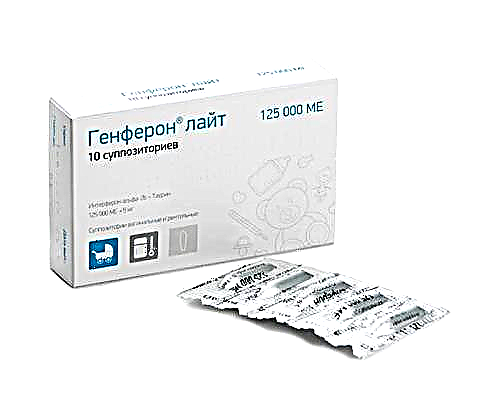
Thrush can be called one of the most common problems in pregnant women. Its causes are both a change in the level of hormones and a decrease in defenses, as a result of which pathogenic fungi provoke an inflammatory process. It is quite simple to detect such a disease, because it has a number of characteristic clinical symptoms, including itching, whitish discharge, redness, and burning of the vaginal mucosa.
To eliminate such signs, antifungal drugs are used, for example, "Nystatin". However, not all of its forms are allowed during pregnancy, so not all expectant mothers are allowed to prescribe such a remedy.
Features of the drug
“Nystatin” has been used to combat pathogenic candida for many years. This is a fairly strong antifungal drug, acting due to the active ingredient of the same name (nystatin).
It is this substance that is able to suppress candida, helps to destroy fungi and relieve the symptoms of thrush. Moreover, it does not provoke addiction and enters the bloodstream in a minimal amount.
In pharmacies, Nystatin is presented in several versions.
- Coated tablets, which are yellowish-green in color and round. They are usually sold in boxes of 10 or 20.
- Rectal suppositories. This "Nystatin" is sold for 10 candles. They are yellow in color and elongated.
- Vaginal suppositories. They are also characterized by an elongated shape and yellow color, sold in blisters of 5 pieces, and one package contains 10 candles.
- Ointment. This form of the drug is a thick yellow substance, packaged in aluminum tubes of 15-30 grams.

Is it allowed during pregnancy?
The doctors' comments regarding "Nystatin" are different. Some doctors consider its use for thrush justified and call such a drug effective, therefore they are prescribed to expectant mothers. Others claim that there are safer analogs, so the use of "Nystatin" should be abandoned for a long time.
In any case, the drug are not discharged earlyso as not to disrupt the development of the embryo and not to provoke a miscarriage.
The safest period for treatment with such a remedy is considered the second trimester, but even at this time, self-medication is unacceptable, that is, "Nystatin" should be prescribed by a doctor.
In the 3rd trimester, the drug can also be used for symptoms of thrush, but with increased caution and only under the supervision of a specialist.
It should also be noted that the restrictions depend on the form of release of "Nystatin". In tablets, this drug is not prescribed to pregnant women, as well as in vaginal suppositories. But rectal suppositories can be used in expectant mothers in case of a fungal infection that has affected the intestines. As for the ointment, it is called a relatively safe type of "Nystatin", so it is allowed for pregnant women and is in demand in the treatment of candidal lesions of nails, mucous membranes or skin.


When is it prescribed for expectant mothers?
The main indication for the use of "Nystatin" during the period of bearing a baby is an infection caused by candida. Such pathogenic fungi are capable of infecting both mucous membranes and skin, as well as internal organs. As already mentioned, in pregnant women, candidal infection is detected quite often, since there are great changes in their body.
First of all, the hormonal background changes and immunity decreases, and therefore it becomes more difficult to resist pathogenic fungi. In addition, there is a change in the acid-base balance of the skin. In addition, such factors as stress, hypothermia, an abundance of sweets in the diet, and synthetic fabric for underwear provoke thrush.

For a baby in the womb, vaginal candidiasis does not pose a danger while the baby grows and develops, since fungi only cause local inflammation. but the lack of treatment can lead to the fact that during childbirth the baby will encounter candida, so infection can occur.
That is why they try to cure thrush long before childbirth, prescribing medicines with antifungal effect, which include Nystatin.
Contraindications
The use of "Nystatin" is prohibited not only in the 1st trimester, but also in cases where if a woman has:
- pancreatitis;
- liver disease;
- stomach ulcer or 12 duodenal ulcer;
- hypersensitivity to any component of the drug.
If at least one of the contraindications is identified, the doctor will refuse to prescribe suppositories or ointments, and instead select an analogue that will not worsen the condition of the pregnant woman.

Side effects
Among the negative effects of "Nystatin" in the reviews of such a remedy mention an allergic reaction arising in individual patients. If the drug causes a burning sensation, rash, itching or other symptom of allergy, it is immediately canceled and an adequate replacement is prescribed.
In some cases, diarrhea, nausea or vomiting occur after the application of Nystatin. With such symptoms, treatment should also be stopped immediately.
Instructions for use
If the expectant mother is prescribed "Nystatin ointment", it is applied in a small layer several times a day to areas that have been affected by fungi. The procedure is carried out within 10-14 days, depending on the intensity of the inflammation. If "Nystatin" is used in suppositories, they are injected into the rectum after an enema or natural emptying. The frequency of use of such a drug is twice a day.
Treatment often lasts no more than 14 days, but the doctor sets the duration of the course more precisely for each patient. If the thrush is severe or the disease is chronic, a combination of suppositories with ointment may also be prescribed. To exclude relapses, it is recommended to use "Nystatin" for the sexual partner of the expectant mother.
Analogs
Other drugs that affect pathogenic fungi are capable of replacing "Nystatin".
- "Pimafucin". This antifungal drug can be used at any stage of pregnancy, is sold without a prescription and contains natamycin. In the first weeks of gestation, it is prescribed in candles and in the form of a cream, and in 2-3 trimesters, if necessary, it is permissible to drink pills. Its action is directed mainly at tissues infected with Candida, so this medicine does not harm the fetus.
- Livarol. These ketoconazole-based vaginal suppositories also have fungicidal properties, so they are often prescribed for candidiasis. However, like Nystatin, they are prohibited in the 1st trimester, and are used with caution in the second and third trimesters.
- "Clotrimazole". This drug is available in several forms, sold in pharmacies without a prescription, acts thanks to the active substance of the same name, and is affordable. For the treatment of thrush, it is prescribed in the form of suppositories, vaginal cream or vaginal tablets. Due to the possible harmful effect on the embryo in the early stages, this medication is not prescribed, and in 2-3 trimesters, treatment with Clotrimazole should be controlled by a doctor.
- "Polygynax". These capsules contain nystatin, but it is supplemented with antibacterial components, so the drug is used not only for thrush, but also for bacterial vaginitis. It is contraindicated in the first trimester. Most often, capsules are used vaginally shortly before birth to prevent infection of the baby during birth.





